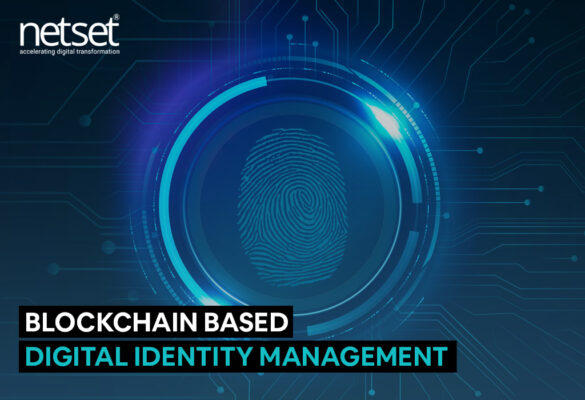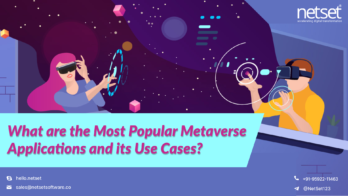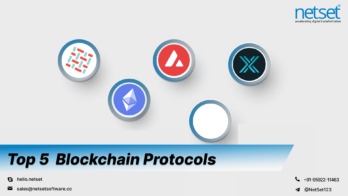A digital identity management system is a technology infrastructure that enables individuals and organizations to create, manage, and store digital identities, and to control access to digital resources and services. It typically involves the use of digital certificates and other forms of authentication to ensure that the identity of a person or device is genuine, and that they have the necessary permissions to access certain resources or perform certain actions.

Challenges with web2.0-based Digital Identity Management System
- Data Security: The massive centralized systems storing the personally identifiable information(PII) may not provide adequate security measures, which can be vulnerable to attack and data breaches.
- Lack of interoperability: Traditional identity management systems are not able to communicate with other peer systems, which can limit the range of services and resources that users can access.
- Lack of control: Traditional systems may not give users enough control over their own digital identities, which can lead to dissatisfaction and mistrust. They do not know:
-
- how many times PII has been shared without their consent
- where all their personal information has been stored
The current method for managing identities needs to be improved. By utilizing blockchain technology for identity management, individuals can take ownership of their own identity through the creation of a universal ID that can be used for various purposes. This will provide users with more security by ensuring that their personal information cannot be shared without their permission by any third party.
What is Blockchain?
Blockchain is a decentralized, distributed digital ledger that records transactions across a network of computers. Each block in a blockchain contains a record of multiple transactions, and each block is linked to the previous one, creating a chain of blocks (hence the name “blockchain”). A company like Netset is a renowned name for Blockchain App Development. We have a team of professional blockchain developers who provide one-stop solutions to create a blockchain for various industries.
Key Features of Blockchain:
- Decentralization: Blockchain technology operates on a decentralized network, meaning that no single entity controls it.
- Immutable: Once data is recorded on a blockchain, it cannot be altered or deleted.
- Transparency: Transactions on a blockchain are visible to all parties on the network.
- Security: Blockchain uses cryptographic techniques to secure its transactions and ensure that the network remains tamper-proof.
- Distributed ledger: Blockchain is a distributed ledger technology which means that a copy of the ledger is present on each node of the network, making it highly resistant to tampering or hacking.
Because of these features, blockchain is used for various applications such as smart contracts, supply chain management, and digital identity management.
What is Smart-Contract?
A smart contract is a self-executing program that automatically enforces the rules and terms of a contract when certain conditions are met. Smart contracts are built on blockchain technology and are typically used to automate the execution of simple financial transactions, such as sending cryptocurrency from one party to another.
Smart contracts work by executing code stored on a blockchain when certain conditions are met. These conditions are typically specified in the contract itself and are enforced by the blockchain network. When the conditions are met, the smart contract automatically executes the specified actions, such as transferring cryptocurrency from one wallet to another.
Smart contracts are typically written in programming languages that are specifically designed for blockchain development, such as Solidity for Ethereum. The code is then compiled and deployed to the blockchain network, where it is stored in a decentralized manner and can be accessed and executed by anyone on the network.
Benefits of Smart Contract:
Speed, efficiency, and accuracy
As soon as the set condition is fulfilled, the smart contract is executed without delay. Due to the digital and automated nature of smart contracts, there is no need for manual paperwork or time-consuming efforts to reconcile errors that commonly occur when filling out documents manually.
Trust and Transparency
Since no intermediaries are involved and the transaction records are encrypted and distributed across all participants, there is no need to doubt whether information has been tampered with for personal gain.
Security
The encryption of blockchain transaction records makes them highly resistant to hacking attempts. Furthermore, since each record is linked to the preceding and succeeding records on a decentralized ledger, any attempt to alter a single record would require modifying the entire chain, making it extremely difficult for hackers to tamper with the data.
Savings
The utilization of smart contracts negates the necessity of intermediaries to oversee transactions and consequently eliminates any delays or fees that may be associated with their involvement.
Blockchain-based Identity Management System…How does it work..?
A blockchain-based identity management system is a secure, decentralized way to manage and protect identity information using blockchain technology.
Here’s how it works:
- Registration: A user initiates the registration process by providing basic information such as name, email, and other relevant information. This information is encrypted and stored on the blockchain.
- Verification: The system verifies the user’s information through various methods such as email, phone number, or government-issued identification. Once verified, the user’s identity is added to the blockchain.
- Access Control: The user can control who can access their identity information, and what information they can access. They can also grant permission to third-party services to access their identity information, such as banks or healthcare providers.
- Decentralization: The identity information is stored on a decentralized network of computers, rather than a central database, making it more secure and less susceptible to hacking or data breaches.
- Smart Contracts: Smart contracts are used to enforce the rules and policies governing the access to and use of identity information. This allows for automated and transparent control over the user’s identity data.

Steps:
- Our Dapp allows new users to create an account with us by providing basic personal information. All this PII (personally identifiable information) will be stored on the phone backed by IPFS in an encrypted form.
- After creating a profile on the dApp, the user will be assigned a unique ID number. This number will enable organizations to access the user’s identification documents.
- Once the user has obtained their ID number, they are required to upload government-issued identification documents within the application, which will be saved on the InterPlanetary File System (IPFS) and the corresponding hashed addresses will be recorded on the blockchain.
- Every time any department/third party will have to access specific details of a person for authentication purposes, a notification will be sent to the individuals owning the identity.
- Once the user allows the companies to access their details, third parties can use the identifiable information for authenticating a person. Also, individuals will be able to trace the purpose for which their PII has been used.
Advantages of Blockchain-based Digital Identity Management
- Unique ID: When a user registers on the blockchain-based identity management system, they will be assigned a unique identification number. This number is composed of all personally identifiable information, encrypted and stored on their device, and also backed up on the IPFS. The user can share their unique ID with any third party to authenticate their identity directly through the blockchain identity management system.
- Consent: A blockchain-based identity management system does not store any personal information about users. Instead, it utilizes smart contracts to allow for controlled data disclosure, making it impossible to manipulate data on the blockchain. This type of identity management system is highly secure for users, as no transactions involving their personal information can take place without their explicit consent, giving them full control over their personally identifiable information
- Decentralized: A decentralized approach is used to store the personal identification documents of users, where all such documents are stored on the user’s device and backed up on the IPFS, making them resistant to mass data breaches. The combination of blockchain identity management and IPFS makes it impossible for hackers to steal identifiable information. The decentralized nature of the system eliminates any single point of failure, meaning that the system will not compromise even if a part of it fails.
- A universal Ecosystem: Blockchain-based identity management has no geographical limitations, allowing users to use the platform to verify their identity across borders.
Some potential use cases for a blockchain-based identity management system include:
- Voting: A blockchain-based identity management system could be used to create a secure and transparent voting system. Individuals would be able to verify their identity and cast their vote using their digital identity, ensuring that each vote is unique and cannot be tampered with.
- Financial services: Banks and other financial institutions could use a blockchain-based identity management system to verify the identity of their customers and prevent fraud. This would also allow individuals to easily and securely access financial services without the need for a physical identity document.
- Healthcare: A blockchain-based identity management system could be used to securely store and share medical records, allowing individuals to control who has access to their personal health information.
- Online identity verification: A blockchain-based identity management system could be used to verify the identity of individuals online, allowing for secure and decentralized authentication without the need for a centralized identity provider.
Overall, a blockchain-based identity management system has the potential to provide individuals with greater control over their personal data and increase the security and transparency of digital identity management.
We at NetSet help organizations to build their own digital identity management system. Leverage the full potential of our team of web3 developers, Solana developers, and get your own dApp launched. The team at NetSet software can provide a thorough understanding of how different components of blockchain can work together and the end result would bring the transformation in traditional identity management software.



